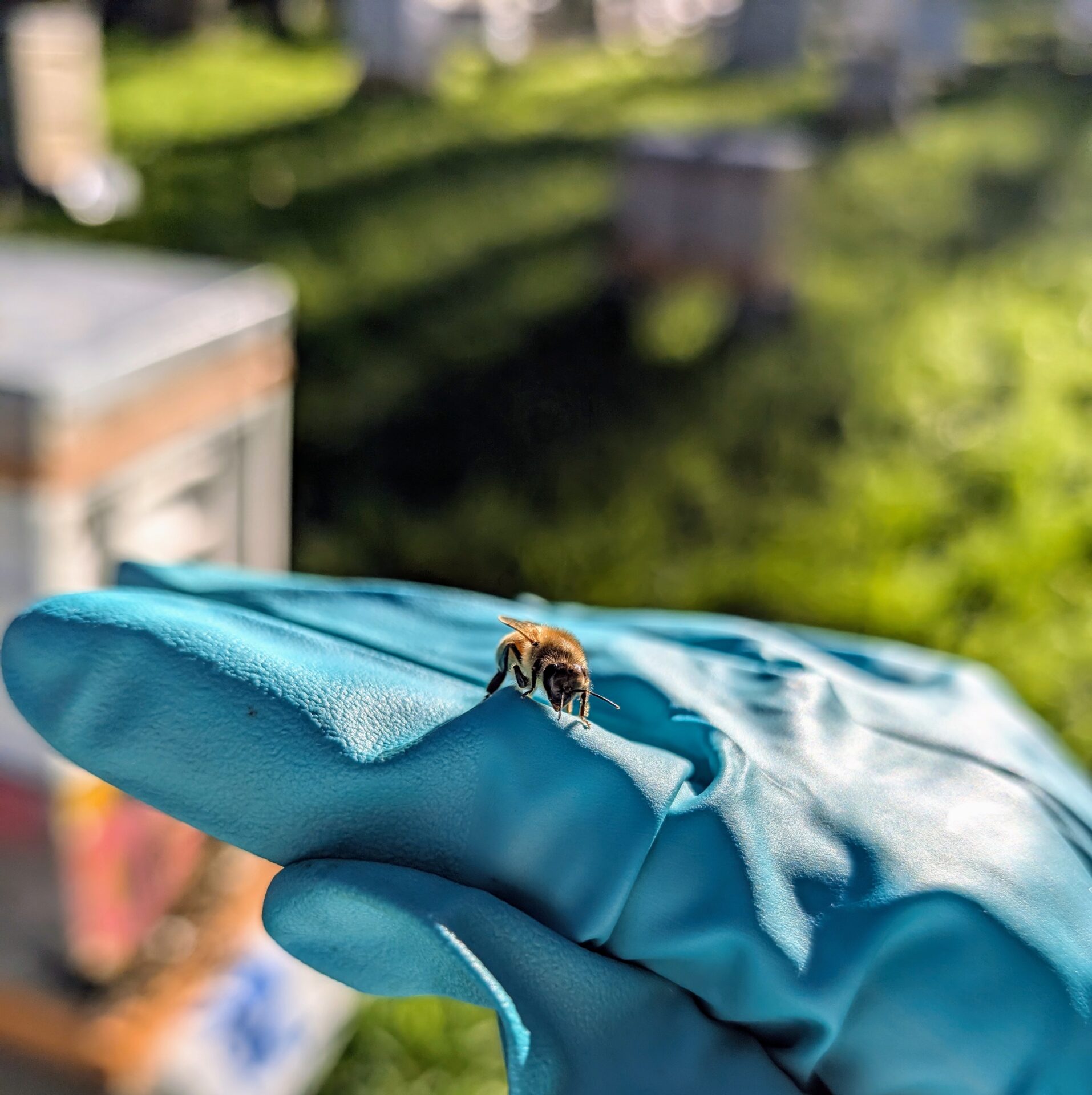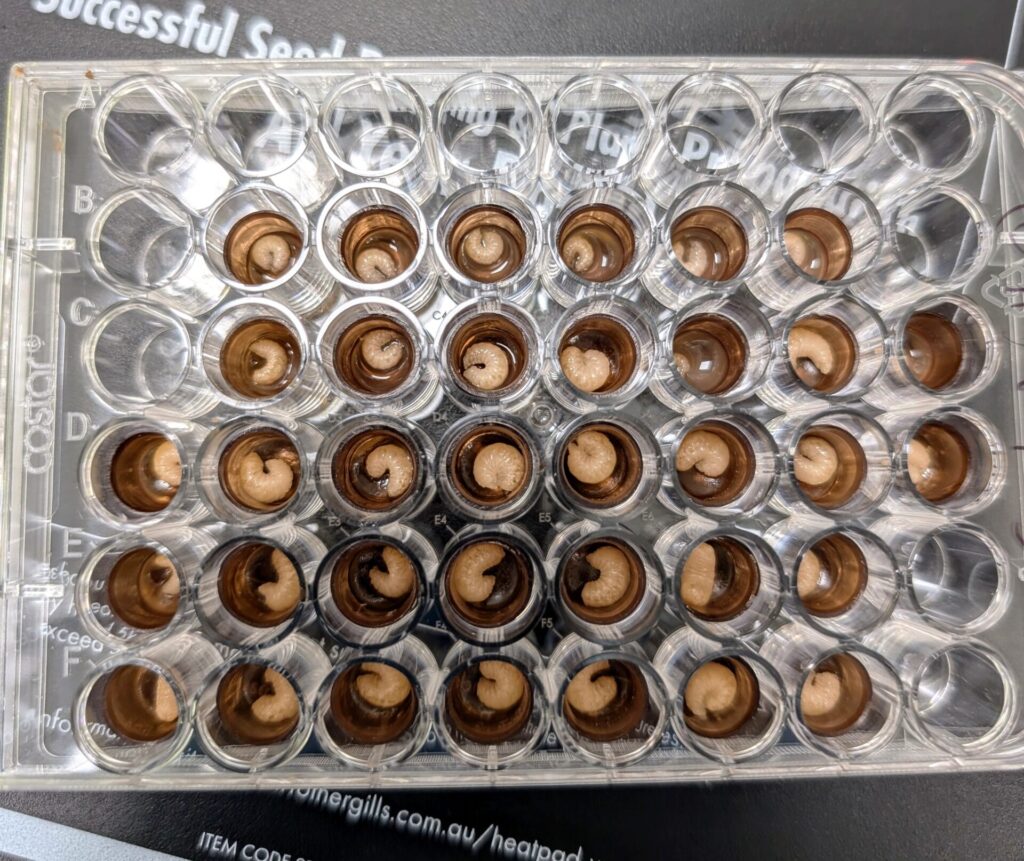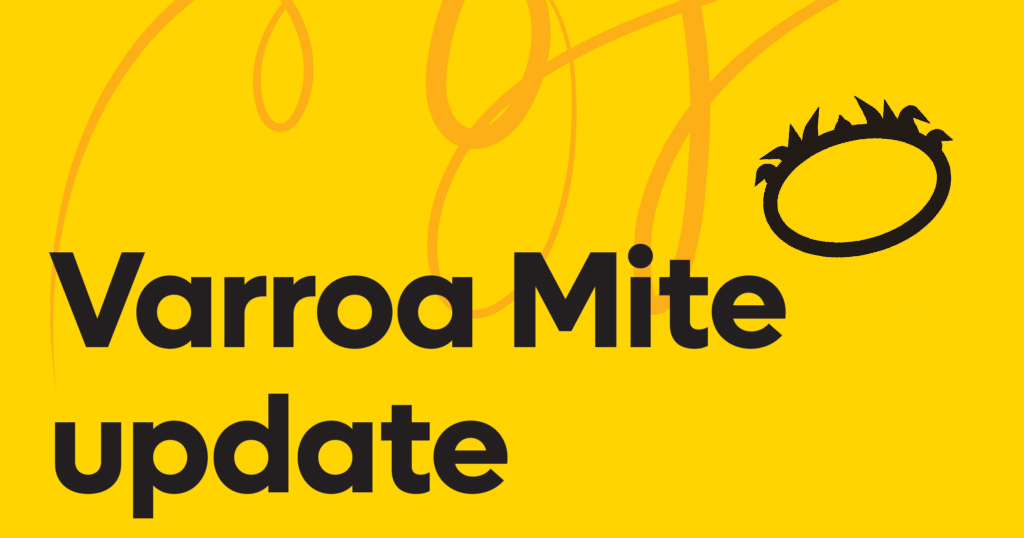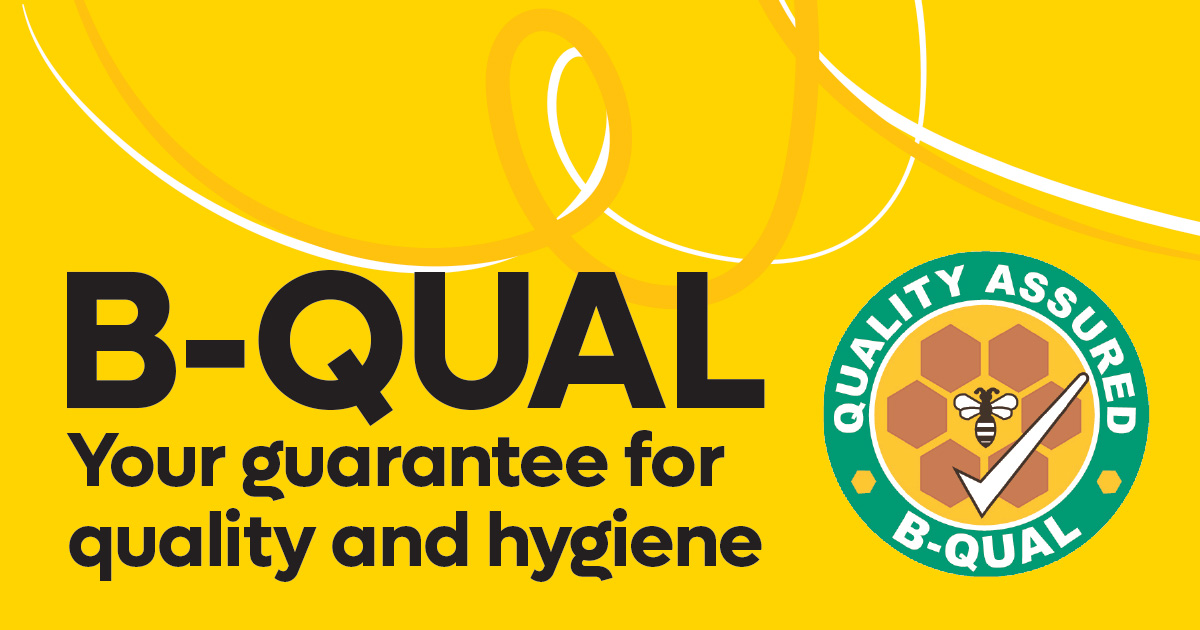Friends of AHBIC
If you aren’t already a Friend of AHBIC, we welcome you to join our group of organisations and individuals who are supporting Australia’s national beekeeping industry that supports you.


If you aren’t already a Friend of AHBIC, we welcome you to join our group of organisations and individuals who are supporting Australia’s national beekeeping industry that supports you.

Now that the AGM/Conference season for state associations is over the AHBIC team are busy working on T2m and ensuring that our biosecurity programs remain funded and operational. A members body, AHBIC executive and congress subcommittee meetings are being held this month.
The last month has been a sad one for our industry with several well known beekeepers passing away.
Our condolences and thoughts are with the following families:
Gell family Maryborough Vic with the passing of Alan Gell;
Rich family Maryborough Vic with the passing of Brian Rich;
Croker family Ulladulla NSW with the passing of Alan Croker; and
Olley family SE Qld with the passing of Ken Olley.
Very knowledgeable beekeepers who worked both within the industry and for the industry. Fortunately, this knowledge would have been passed down within these multi -generational beekeeping families.
Stephen Targett
Chair

July and August marks the start of the new season with many beekeepers very busy with bees being delivered to pollination jobs across the country. Few reports of problems have come to AHBIC leading us to think that beekeepers have been able to navigate the regulations to get to where they need to go. Generally, beekeepers have reported good quality pollination hives coming out of winter in the eastern states.
Unfortunately, varroa has been found in Victoria with a very low detection in a single hive being found in North Western Victoria. It is unclear at this stage what this detection means for the current movement restrictions, but we will keep a close eye on any developments.
The third and last of train the trainer event is being held in Brisbane. This will upskill the remaining contract trainers and enable training to be delivered in the remaining jurisdictions.
VDO’s are reporting high levels of reinfestations in the Sydney-Newcastle region with high colony losses reported where monitoring isn’t conducted regularly. The change in recommendation from NSW DPIRD for monitoring from 16 weeks to at least every 4 weeks where varroa is present is as a result of the field reports.
The organising committee of the 5th Australian Bee Congress have been working diligently to assess potential venues. The committee recommended and to the AHBIC board approved, that the 2026 Congress will be held at the Adelaide Convention Centre, 19th-21st June 2026. More details will be communicated directly to industry in the coming weeks.
Currently there has been 40 colonies detected and destroyed in the Burrup peninsula. All but 6 of those colonies had Euvarroa present, but no other exotic mites or viruses. Negotiations continue with CCEPP to determine the future of the response and funding. AHBIC continues to reiterate the importance of eradicating this pest to all affected parties.
This response has been stood down with the movement control order due to expire at the end of August. There have been no further detections of either Asian honey bee or varroa jacobsoni. We anticipate QDAFF will provide more information to CCEPP about the future plans and proof of freedom moving forward.
Over the next month AHBIC will be busy working in the T2M program and working towards actioning the many motions from the AGM.
Danny LeFeuvre
CEO

Article written by Dr Georgina Binns, Research Officer, Eco-Immunology Lab, Macquarie University
Researchers are assessing the effects of probiotic treatments on honeybees to increase brood survival against common brood diseases.
Honeybees have been victims of their success as pollinators with pathogens and parasites colonising hives. Exposure to climate change, pesticides and pollutants has weaken bees’ health. Now, more than ever before, crop-pollinating honeybees need extra support to survive common pathogens. Our team at Macquarie University have been working on designing economical and naturally chemical-free probiotics to help boost disease-resistance in honeybees, particularly targeting brood pathogens such as chalkbrood and American and European foulbrood. These prevalent diseases infect colonies and reduce brood survival throughout the year, reducing bee numbers and negatively effecting pollination services.
The Honeybee Probiotics team, which includes myself, Post-doctoral Fellow Dr Darsh Rathnayake, PhD candidate Casey Forster, and that is led by Associate Professor Fleur Ponton, have recently completed a set of preliminary trials, where we grafted hatched larvae from our campus hives and hand-raise them in a specialised ‘insectary’ laboratory to adulthood.

We have focused on two probiotic treatments. The first is a set of honeybee gut microbes that we isolated from bee guts. These ‘native’ species of bacteria include members from the core-gut microbes found in all bees throughout the year, such as several Lactobacillus species, Bifidobacterium asteroides, Snodgrassella alvi and Gillamella apicola. We predicted that reinforcing the natural gut bacteria would create a thriving beneficial community within the brood gut, and therefore aid in safeguarding the gut from potential infections as well as supporting overall health.
The second treatment contains the same bacteria as the first, but with the addition of several ‘non-native’ species of bacteria that are commonly found in commercial probiotics for both humans and animals, such as Lactobacillus plantarum and L. rhamnosus. These species are found to grow quickly and prolifically. They may exclude and prevent other potentially harming species of bacteria and fungi (such as those that cause chalkbrood and foulbrood disease) from taking hold of the individual bee. As the larvae will shed all of their gut microbes prior to pupation, we felt that including these non-native species could give a short-term benefit to the individual, without negatively affecting the adult bee it will eventually become. Further, it gives an opportunity to test the efficiency of probiotic bacteria that are already on the market.
Our preliminary trials are showing that the non-native probiotic mix decreases brood to adulthood survival. The native mix, however, promoted brood survival and adult emergence. The next step of our experiments is to inoculate bee larvae with pathogens and test the effect of the mixes on their resistance. We predict that non-native probiotic bacteria will exclude pathogens from the gut, however we do not know how it will affect bee survival.
How many times should the treatment be given to be efficient is another important question. We investigated the frequency of probiotic treatments on bee survival. Previous studies have fed probiotics to larvae for five days consecutively during rearing. However, we believe that a treatment that can easily be used by professional beekeepers should be delivered in one or two doses. We ran two trials, where one set of brood were fed the probiotics only once, and the other set were treated five times. Interestingly, this preliminary trial found that dosing the brood with probiotic treatments five times significantly increased mortality. This suggests that repeated doses of beneficial bacteria can become detrimental to the individual over time.
Our next step is to test the efficacy of the probiotic treatments against the three bacterial and fungal pathogens we have stored in our laboratory, which we hope to start when the weather warms up. Keep up to date with our research by visiting our website: https://sites.google.com/view/aussiepollinatorhealth/home
Funding Acknowledgement;
Probiotics in honey bees to fight bacterial and fungal diseases (PH21003) is funded through Frontiers developed by Hort Innovation, with co-investments from Macquarie University and contributions from the Australian Government.
Cover image: Macquarie University has a number of hives on campus for research purposes. Image by Georgina Binns.


Varroa mites have been confirmed within Victoria. As a result of routine strip and mat surveillance by the Agriculture Victoria Apiary Compliance team, a single hive has returned a positive sticky mat with a very low level of mites.
The location of the infected premise is at a property in Nangiloc near Mildura. Agriculture Victoria have begun to work directly with the affected, and surrounding apiarists involved and will provide ongoing support and updates over the coming days.
This extremely low-level detection should not cause alarm among beekeepers in the area. Beekeepers in the area should continue routine surveillance for the presence of mites in their hives and only act if above threshold levels. It is unlikely this low-level detection will result in a large spreading event in the Mildura area.
Agriculture Victoria have reaffirmed to industry that they will not euthanise any hives nor try to eradicate varroa from the state.
Victorian registered beekeepers will be updated through direct emails form Agriculture Victoria and can seek information by visiting
Agriculture Victoria website:
As part of the Transition to Management Program, Varroa Development Officers (VDO) are already employed and working in Victoria, the main aim of VDO’s is to provide hands on beekeeping support directly to beekeeping industry.
Beekeepers in Victoria can reach out for support from VDO’s by emailing Victorian.VDO@agriculture.vic.gov.au or by calling: 1800 958 485
Importantly, details of this new detection may impact peoples mental and emotional wellbeing. In times such as this, beekeepers are encouraged to look after themselves and each other.
If at any time you are worried about your mental health or the mental health of a friend or loved one, call Lifeline on 13 11 14 or contact:
For information about trauma and things you can do to cope with and recover from traumatic events, visit the Better Health Channel:
Another successful online Webinar was hosted by AHBIC and the National T2M Program team on 30 July, delivering detailed presentations from Victoria, South Australia and Queensland apiary teams on interstate requirements followed by an informative number of case studies from the field in NSW by the NSW Extension Coordinator and of course a live Q&A. Jump in and watch the recording if you missed it, there were some great details with some really engaging audience questions.
Click here to watch the webinar: https://youtu.be/mGYCjS56UZ0
You can reach out to AHBIC via:
National Varroa Mite Coordinator
Bianca Giggins
0402 467 780
AHBIC, its employees, executive and consultants expressly disclaim all and any liability to any person in respect of anything, and the consequences of anything, done or omitted to be done in reliance, whether wholly, partly, upon the whole or any part of the contents of this industry update document.


B-QUAL is an Industry Owned Quality Assurance System for Australian beekeepers.
How does B-QUAL certification benefit my business?
B-QUAL Certification also enables an enterprise to market its product under the B-QUAL logo to show that it meets the B-QUAL Industry Standards.
Complete your training at home at your own pace.
For more information and to obtain a Certification Information Pack, contact the B-QUAL Certification team.
www.bqual.com.au
B-QUAL Pty Ltd
Phone 07 49949820
Email: admin@bqual.com.au
Hosted by AHBIC including presentations to share the work being done under the National Transition to Management for Varroa.
Including: